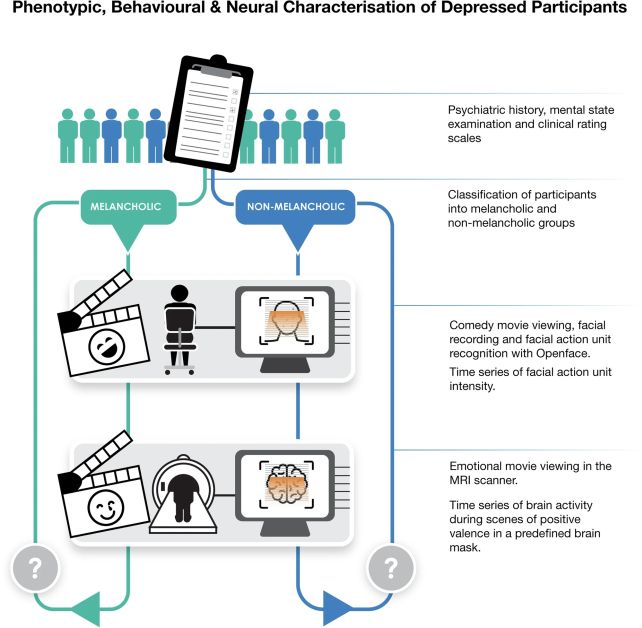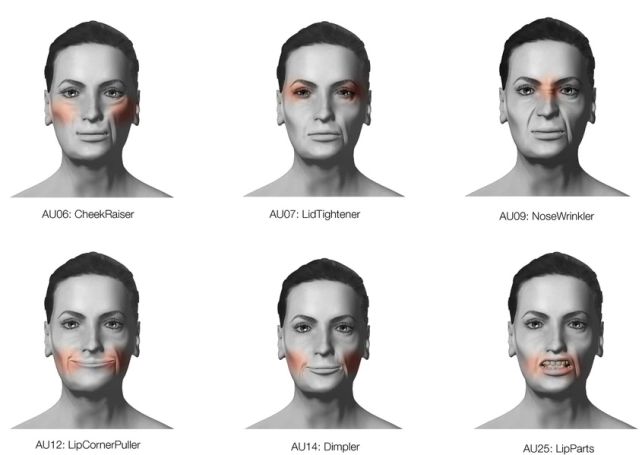New hope for earlier remedy may be on the horizon for folks struggling essentially the most extreme type of melancholy.
In a examine of sufferers watching emotionally evocative films, the responses of individuals with a type of melancholy often known as melancholia have been distinctly totally different from these of sufferers with a much less extreme type of the melancholy.
This discovery might result in a analysis of melancholia sooner, serving to sufferers get the best remedy shortly to keep away from the extra invasive interventions that may be required if the analysis is delayed.
“For basically as long as depression has been recognized as a condition, as far back as the times of the ancient Greeks, it’s been noted that there are some people with depression that seem to get a very physical presentation,” neuropsychiatrist Philip Mosley of QIMR Berghofer Medical Analysis Institute in Australia informed ScienceAlert.
“So they stop eating, they lose the ability to sleep, they seem slowed down as if they’re walking through concrete. Their speed of thought reduces markedly, and they are often very sick.”
Known as melancholia, this sub-type of melancholy usually fails to reply effectively to psychological therapies. Mosley describes the analysis as an effort to create a toolbox that permits specialists to diagnose varieties of melancholy with a level of precision that allows a immediate, tailor-made strategy.
Melancholia impacts round 5 to 10 p.c of all folks with melancholy, and it might usually be difficult to diagnose. The later it’s identified, the extra seemingly it’s the affected person may have a stronger therapies comparable to electroconvulsive remedy or transcranial magnetic stimulation. These therapies are very efficient, but in addition can really feel intimidating and invasive.
For early diagnoses, medicine could be fairly efficient, and that’s what Mosley and his colleagues are attempting to attain.
Different research at QIMR Berghofer contain using emotional movies to check the responses of individuals with varied neurological and psychological circumstances. Since one of many manifestations of melancholic melancholy is a flat have an effect on, Mosley needed to research whether or not the situation could possibly be gauged by observing emotional responses, or lack thereof, in depressive sufferers.
Their examine concerned 70 sufferers with melancholy: 30 with melancholic melancholy and 40 with non-melancholic melancholy. These sufferers have been proven two movies, a humorous video of a comic’s set fastidiously edited to take away offensive materials (Ricky Gervais’ Animals, for the curious), and a brief movie a few touring circus referred to as The Butterfly Circus that, Mosley stated, is “quite moving” and elicits numerous mind exercise.

Whereas the sufferers watched the movies, their facial and mind exercise was recorded, the previous with a digicam to trace each minute muscle twitch throughout the Gervais set, the latter with the affected person in an MRI machine whereas watching The Butterfly Circus.
The distinction between the 2 affected person units was stark. For the Gervais video, though the sufferers with non-melancholic melancholy have been nonetheless depressed, they did reply with facial expressions and giggles. In the meantime, the sufferers with melancholic melancholy have been utterly emotionless. Mosley describes them like “statues” with “no facial movement at all, no smiling, no chuckling.”
One thing comparable occurred within the MRI machine. The brains of sufferers with non-melancholic melancholy lit up, significantly within the cerebellum, which is concerned with computerized emotional responses.
“With people with melancholic depression,” Mosley stated, “those emotional regions of the brain – the ones involved in detecting and responding to stimuli with an emotional tone – were just doing their own thing, disconnected, not integrated with the rest of the brain, not involved in processing with other regions of the brain that are relevant in these tasks.”

This clear distinction between the 2 ranges of response could possibly be an especially helpful diagnostic device that may be carried out shortly and non-invasively, without having to attend months to see a psychiatrist. As an alternative, these treasured months could possibly be used acquiring the best remedy for the form of melancholy the affected person suffers.
However this analysis might have long run implications. We do not know why some folks get melancholy, and why that melancholy can sometimes be extreme sufficient to be life-threatening. Studying in regards to the variations between the types melancholy can tackle a mechanistic stage can in the end assist direct the best remedy to everybody who suffers from it.
“In this study, we’ve shown that melancholia, which has long been considered a separate type of depression right back through literary times and even even the ancient Greeks wrote about it, really does differ in terms of the brain and physical manifestations of depression,” Mosley stated, “which then leads us to think, well, maybe we should be approaching this in a different way to get people better quicker.”
The staff’s findings have been printed in Molecular Psychiatry.
For those who suppose you will have melancholic melancholy, the most suitable choice for analysis remains to be at the moment a psychiatrist. Please discuss to your physician about looking for an appointment.
If this story has raised considerations or you might want to discuss to somebody, please seek the advice of this record to discover a 24/7 disaster hotline in your nation, and attain out for assist.
For those who want to take part within the Genetics of Melancholy examine at the moment underway at QIMR Berghofer in Australia, you could find contact particulars on its web site.

